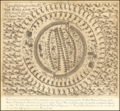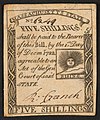Portal:New England
The New England Portal New England is a region comprising six states in the Northeastern United States: Connecticut, Maine, Massachusetts, New Hampshire, Rhode Island, and Vermont. It is bordered by the state of New York to the west and by the Canadian provinces of New Brunswick to the northeast and Quebec to the north. The Gulf of Maine and Atlantic Ocean are to the east and southeast, and Long Island Sound is to the southwest. Boston is New England's largest city and the capital of Massachusetts. Greater Boston is the largest metropolitan area, with nearly a third of New England's population; this area includes Worcester, Massachusetts, the second-largest city in New England; Manchester, New Hampshire, the largest city in New Hampshire; and Providence, Rhode Island, the capital of and largest city in Rhode Island. In 1620, the Pilgrims established Plymouth Colony, the second successful settlement in British America after the Jamestown Settlement in Virginia, founded in 1607. Ten years later, Puritans established Massachusetts Bay Colony north of Plymouth Colony. Over the next 126 years, people in the region fought in four French and Indian Wars until the English colonists and their Iroquois allies defeated the French and their Algonquian allies. (Full article...) Selected article
In September 1775, early in the American Revolutionary War, Colonel Benedict Arnold led a force of 1,100 Continental Army troops on an expedition from Cambridge, Massachusetts to the gates of Quebec City. Part of a two-pronged invasion of the British Province of Quebec, his expedition passed through the wilderness of what is now Maine.
Unanticipated problems beset the expedition as soon as it left the last significant colonial outposts in Maine. The portages up the Kennebec River proved grueling, and the boats frequently leaked, ruining gunpowder and spoiling food supplies. Many of the troops lacked experience handling boats in white water, which led to the destruction of more boats and supplies in the descent to the Saint Lawrence River via the fast-flowing Chaudière. By the time Arnold reached the French settlements above the Saint Lawrence River in November, his force was reduced to 600 starving men. Arnold's troops crossed the Saint Lawrence on November 13 and 14 and attempted to put Quebec City under siege. Failing in this, they withdrew to Point-aux-Trembles until Richard Montgomery arrived to lead an unsuccessful attack on the city. Arnold was rewarded for his effort in leading the expedition with a promotion to brigadier general. (Full article...) Selected biography
James Gillespie Blaine was an American Republican politician who served as United States Representative, Speaker of the United States House of Representatives, U.S. Senator from Maine, and twice as Secretary of State. He was nominated for President in 1884, but was narrowly defeated by Democrat Grover Cleveland. Blaine was one of the late 19th century's leading Republicans and champion of the moderate reformist faction of the party known as the "Half-Breeds".
Blaine was born in western Pennsylvania and moved to Maine where he became a newspaper editor. Nicknamed "the Magnetic Man," he was a charismatic speaker in an era that prized oratory. He began his political career as an early supporter of Abraham Lincoln and the Union war effort in the American Civil War. In Reconstruction, Blaine was a supporter of black suffrage, but opposed some of the more coercive measures of the Radical Republicans. Initially a protectionist, he later worked for a reduction in the tariff and an expansion of American trade with foreign countries. Railroad promotion and construction were important issues in his time, and as a result of his interest and support Blaine was widely suspected of corruption in the awarding of railroad charters; these allegations plagued his 1884 presidential candidacy. (Full article...) Selected picture Credit: Fcb981 (2007) John F. Kennedy Presidential Library, on the campus of the University of Massachusetts Boston
General images -The following are images from various New England-related articles on Wikipedia.
Did you know (auto-generated)
Related portalsMore did you know...
Selected State
Massachusetts
Incorporated 1775 Co-ordinates 42.3°N 71.8°W Massachusetts is the 7th least extensive, but the 14th most populous and the 3rd most densely populated of the 50 United States. The state features three separate metropolitan areas: Greater Boston in the east - which also includes all of Rhode Island - and the Springfield and Pittsfield metropolitan areas in the west. Massachusetts has played a significant historical, cultural, and commercial role in American history. Plymouth was the site of the colony founded in 1620 by the Pilgrims, passengers of the Mayflower. Harvard University, founded in 1636, is the oldest institution of higher learning in the United States. In 1692, the towns surrounding Salem experienced one of America's most infamous cases of mass hysteria, the Salem Witch Trials. Originally dependent on fishing, agriculture, and trade, Massachusetts was transformed into a manufacturing center during the Industrial Revolution. In the 21st century, Massachusetts is a leader in higher education, health care technology, high technology, and financial services (Full article...) WikiProjectsAssociated WikimediaThe following Wikimedia Foundation sister projects provide more on this subject:
Discover Wikipedia using portals |
















































































